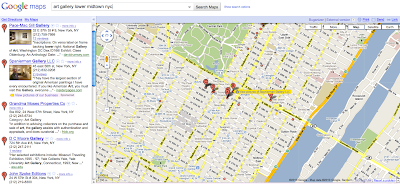[Cross-posted from the Google Enterprise Blog]

Editor’s note: We recently launched an improvement that makes over 60 additional Google services available to Google Apps users. This series showcases what’s new and how your organization can benefit.
Welcome to Google Alerts
No organization is an island. If you’re in business, it’s critical to be connected to what’s happening in your market and to hear what your customers are saying. If you’re in education, you need to stay on top of the latest announcements and innovations within your field. But given the immense amount of data being created every day on the Web, how can you possibly keep track of new information as it's published?
Now Google Apps customers can tackle this problem using Google Alerts with their Apps accounts. Google Alerts is a content monitoring service that notifies you when Google’s search engine encounters new content - such as web pages, newspaper articles, or blogs - that you’re interested in from all across the Web. Simply enter your search terms and Google Alerts will notify you via email whenever Google finds new results that match your terms. To avoid information overload, you can configure Google Alerts to send one email per day or per week, compressing the most important results into a brief message.

Once you’re up and running with Google Alerts, try setting up an alert on the name of your organization or industry. Use quotes if your search term is longer than one word (for example, “small business financing” or “solar power”) - you’ll get more accurate results. Then wait and see what turns up in your inbox. You might be surprised to find out who’s writing about you!
Learn more and get started
Google Alerts can be enabled by your domain administrator from the Google Apps Control Panel at https://www.google.com/a/[your_domain.com] (replace [your_domain.com] with your actual domain name). If your organization isn’t using Google Apps yet, you can learn more and sign up today at http://www.google.com/apps/more.
For more information or answers to specific questions about Alerts, visit our Help Center pages.
Share your story
Have you already started using Google Alerts at your organization, or plan to now that it’s available? Please share your story and your organization could be featured in the next Gone Google ad campaign!
Note: Google Alerts may not be available in all areas.


























